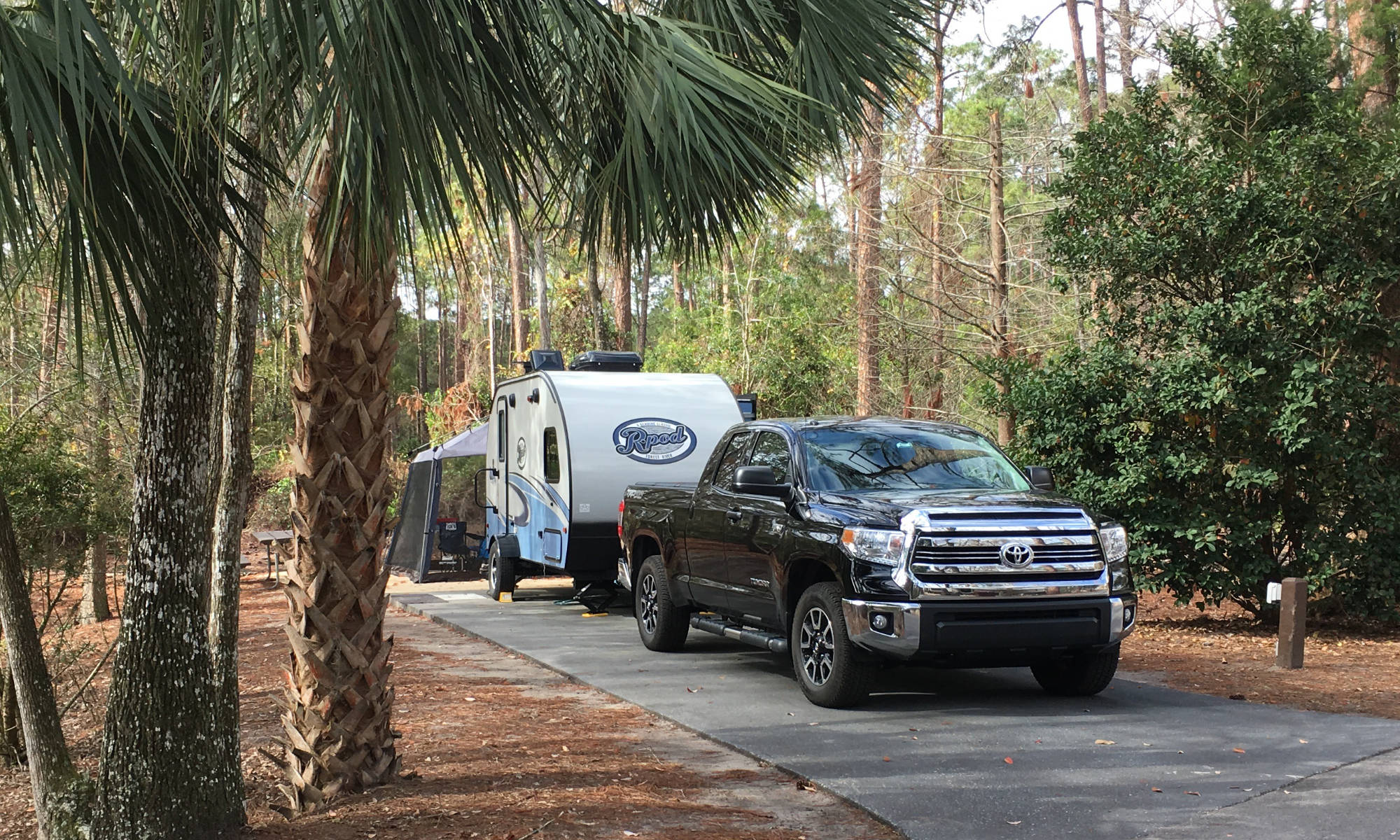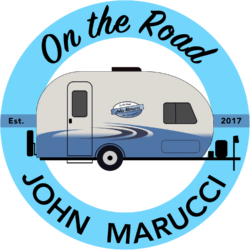Click here to sign up for reminders when new blogs are posted.
This blog post was originally posted in August of 2020. It is being reposted as a resource during trip planning season.
The choice of a campsite has the potential of adding or subtracting stress from your overall camping experience, so it’s important to learn how to do this well.
There are a few questions to consider up-front:
First, how close do you want to be to other campers? This will determine what sites you will want to pick or avoid.
Second, how long do you plan to stay in one place? This makes a difference, as you may be willing to endure closer quarters to other campers if you know you’ll only be there a short time.
Third, do you plan to use the campground bathhouses? This will determine where in the campground you may want to stay in order to reduce the walk to the bathhouse.
The answers to these questions will influence your expectations. For example, if you happen to be more extroverted, you may be fine with being closer to your camping neighbors. On the other hand, maybe you aren’t so extroverted, and being close to neighbors will cause you stress or keep you up later than you’d like. So, understanding your temperament, expectations and preferences are important when determining your ideal campsite.
So, let’s assume that your picture of an ideal campsite is quiet and away from people, but you would like electrical service at your campsite. So, how do you pick this type of campsite at a State Park, for example? Let’s look at a few campgrounds and find out…
Here we have Yankee Springs State Rec Area between Kalamazoo and Grand Rapids Michigan. This is a nice place to stop over when traveling north or south through Michigan.
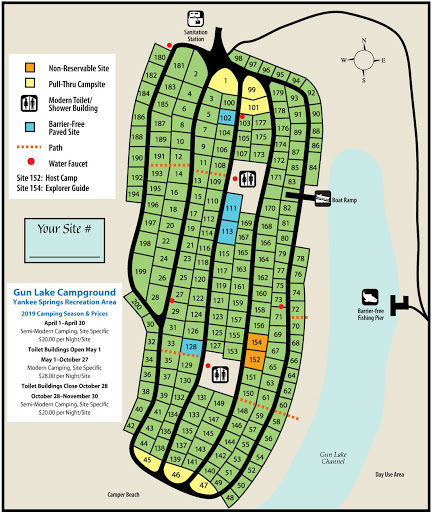
This is a classic example of what I call a “parking-lot” campground. As you can see, there are some very nice and highly sought-after perimeter water sites and a few other non-water perimeter sites, yet most sites are infield sites lined up back-to-back, and can be very crowded especially on weekends.
So here are some considerations:
-
- If you don’t want neighbors directly behind you, get a perimeter site, but watch for foot paths, watering areas, and trailheads. Lots 58 & 70 for example, are prime water sites, but notice the red dotted line. These are paths to the water that anyone can use that will be on your campsite side. This likely means you will have regular traffic when you are sitting out at your campsite. Again, this may be fine with you, or not depending on temperament and expectations.
- Be aware that if you do choose an infield site, you may have you neighbor’s smoke and soot covering your trailer or screen room. We had this happen on lot 146 with the folks in lot 57 who really didn’t know how to build a fire.
- Also, be aware of paths to bathhouses. You may be in the non-marked footpath site. We have had this happen when staying on lot 171, thinking we wanted something close to the bathhouse. Unfortunately, it was the preferred cut-through site of everyone on the lake side of this site. The entire trip we had dozens of passers-by each day, while trying to work. Lesson learned.
- Understand that the infield sites are excellent should you wish to get together with several other RVers and create a small block of sites. Many people do this, and it is a great way to go should you have friends or family all with RVs that want to go camping together. For example, you could book sites 121-125 on one street and 155-159 on the next street and have a six-site block for a large family gathering RV meet-up.
Next, let’s look at Fort Custer State Rec Area west of Battle Creek Michigan. This is a good stop if you are looking for something between Detroit and Chicago just a few miles off I-94.

Notice the different campground layout with the two donut structures. This means no campsite will be back to back. In essence, what this layout does is create all-perimeter sites and much more privacy. Look at the paths to bathhouses. While possibly more distance to the bathhouse, generally the layout means less cutting through sites. What you don’t see from the map is that many of the sites also have decent berms between sites, making them very private. The negative of this type of structure is that it isn’t ideal for a large gathering or meet-ups, where combining sites together is essential.
Next, let’s ponder Lake Louisa State Park near Clermont Florida. It is a bit more complicated in terms of having three loops and some pull-through sites and some sites that are back-to-back to some degree.
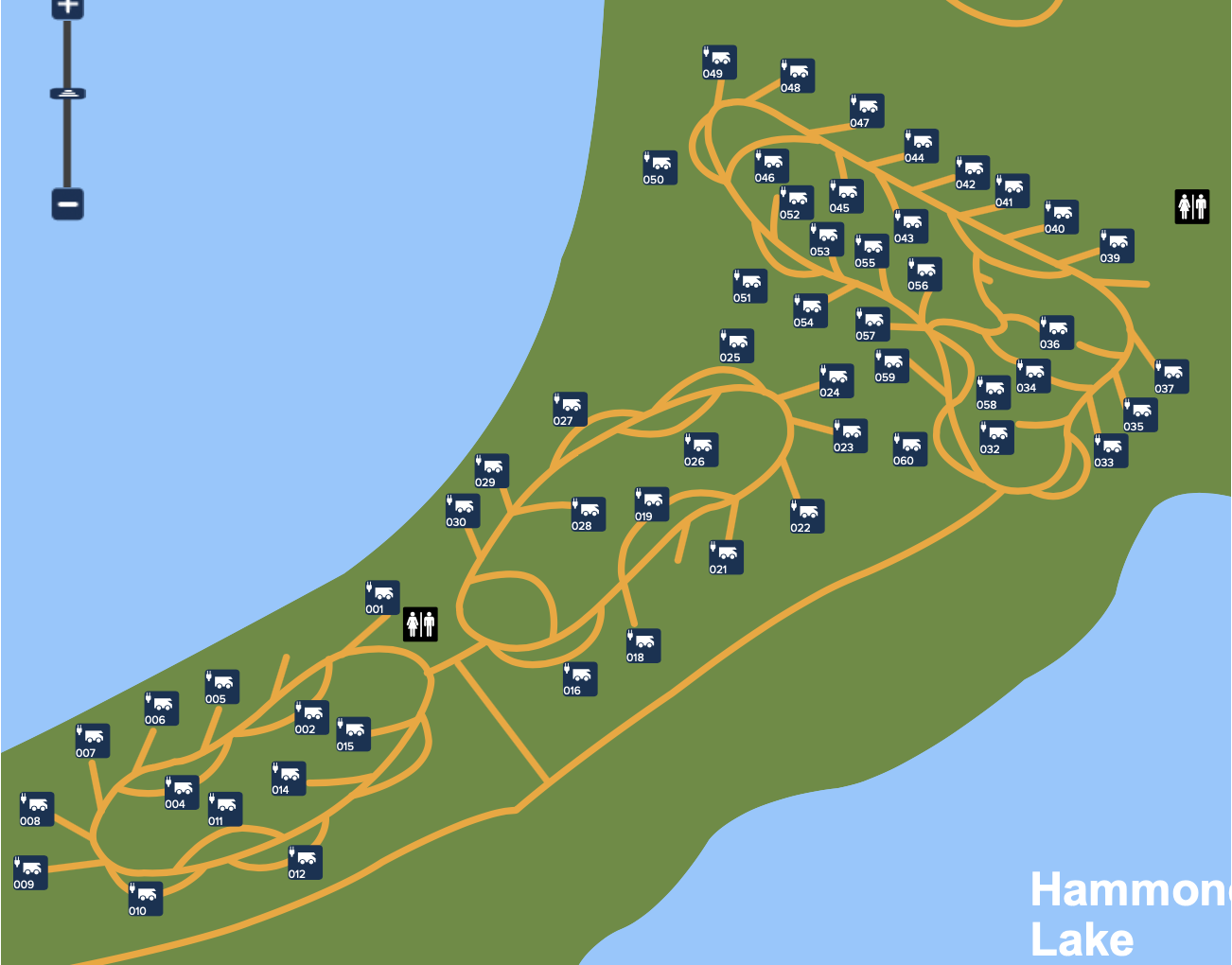
This also illustrates the need for more information than a simple map can provide, as some of these sites have full hookups, and some look like back-to-back sites but have considerable berms. There are also boardwalks to lakes and trailheads that this simple map doesn’t show.
You may need to click into the site detail to get more information. Here you can see much more detail about the site and look at a few pictures.
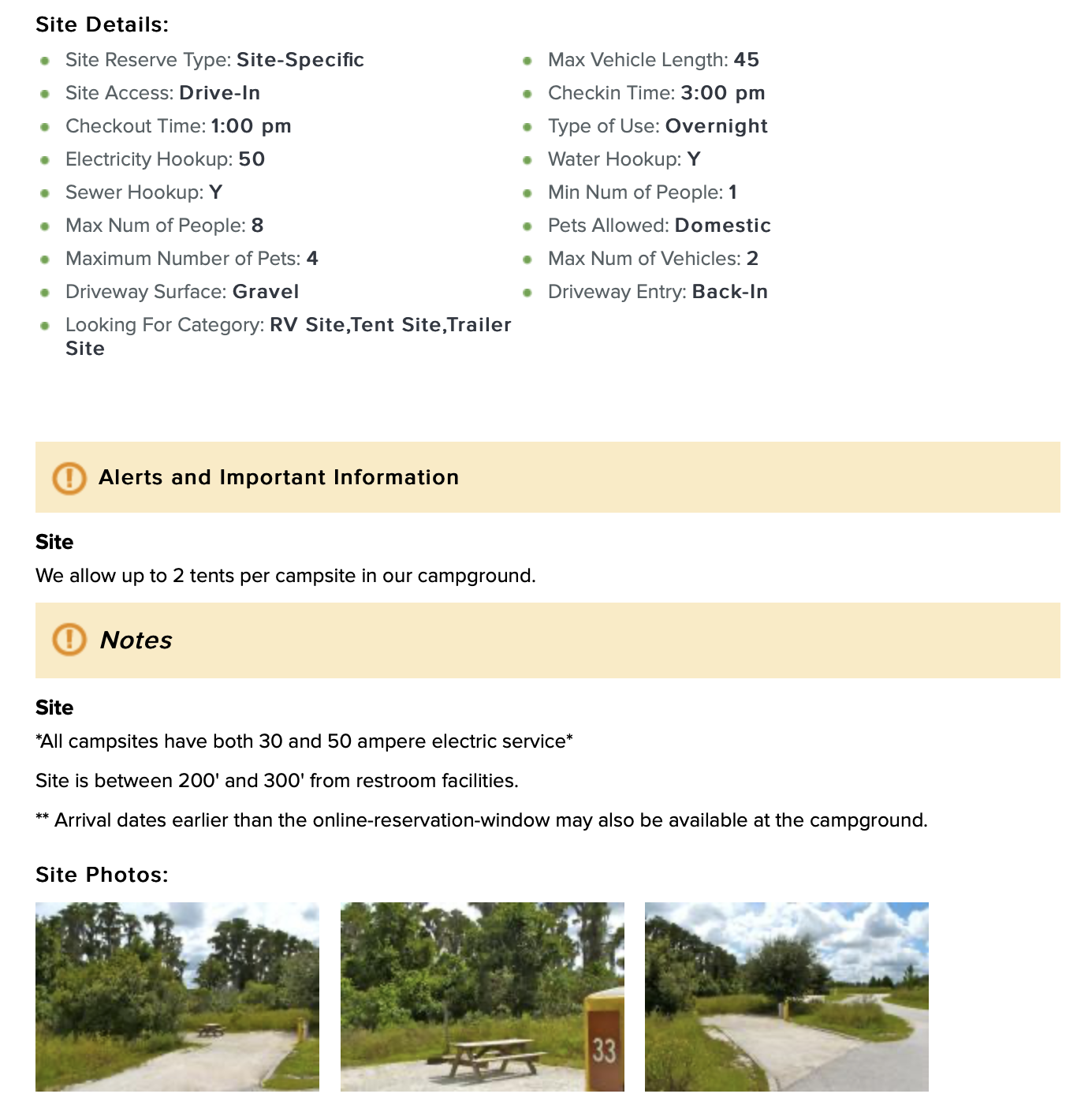
This allows us to see that this site does have full-hookups and that there is a decent amount of space between sites and it has a private back yard.
It is also important to do other research as required. Sites like Campendium.com, Trip Advisor and Google Maps reviews can help. Other social media sites can also come in handy by finding others who have stayed there and can make recommendations. Colt Creek State Park near Lakeland FL, for example has a Friends of Colt Creek State Park Facebook page.
Obviously, there are many other ways to camp, from boondocking with no one around, to some private campgrounds where you will be very close to neighbors. Generally, it is a good idea to understand your camping style and desires in a campground when choosing a specific site.
All the best on your camping endeavors!
We’d love for you to join the On The Road Team by subscribing to the YouTube channel. If you want to dive deeper, we put more content and photos on Instagram and Twitter @JohnMarucci. You can also follow John on Facebook @JohnMarucciOnTheRoad.
As always, thanks to our teammates who support the channel by watching the YouTube Ads and by starting their shopping from the On The Road Amazon Storefront at: amazon.com/shop/johnmarucci. Your support is greatly appreciated!
Watch the more than 100 videos from John Marucci – On The Road!
